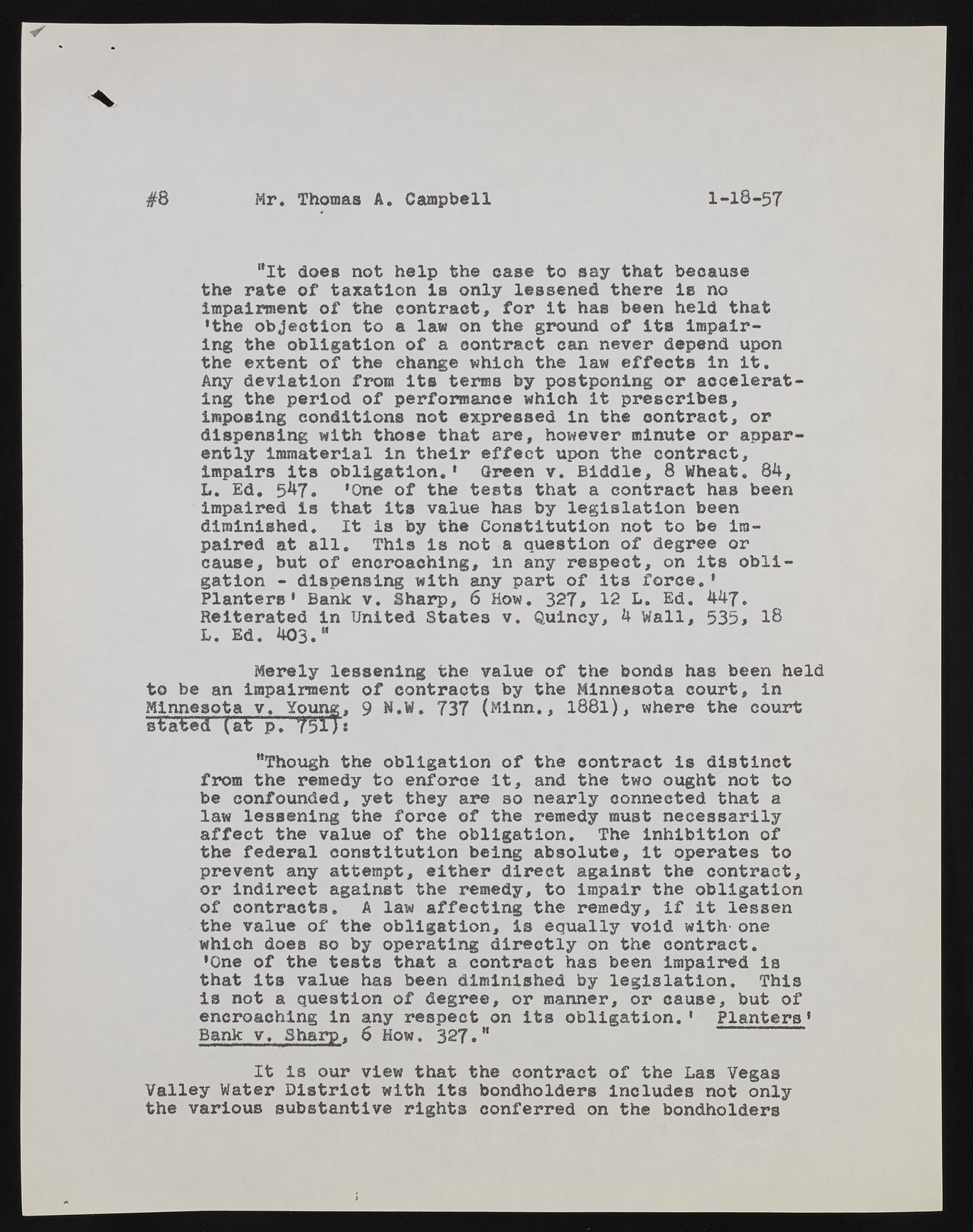Copyright & Fair-use Agreement
UNLV Special Collections provides copies of materials to facilitate private study, scholarship, or research. Material not in the public domain may be used according to fair use of copyrighted materials as defined by copyright law. Please cite us.
Please note that UNLV may not own the copyright to these materials and cannot provide permission to publish or distribute materials when UNLV is not the copyright holder. The user is solely responsible for determining the copyright status of materials and obtaining permission to use material from the copyright holder and for determining whether any permissions relating to any other rights are necessary for the intended use, and for obtaining all required permissions beyond that allowed by fair use.
Read more about our reproduction and use policy.
I agree.Information
Digital ID
Permalink
Details
More Info
Rights
Digital Provenance
Publisher
Transcription
#8 Mr. Thomas A. Campbell 1-18-57 "It does not help the case to say that because the rate of taxation Is only lessened there Is no impairment of the contract, for it has been held that •the objection to a law on the ground of its impairing the obligation of a contract can never depend upon the extent of the change which the law effects in It. Any deviation from its terms by postponing or accelerating the period of performance which it prescribes, imposing conditions not expressed in the contract, or dispensing with those that are, however minute or apparently immaterial in their effect upon the contract, impairs its obligation.1 Green v. Biddle, 8 Wheat. 84, I*. Ed. 547. ’One of the tests that a contract has been impaired is that its value has by legislation been diminished. It is by the Constitution not to be impaired at all. This is not a question of degree or cause, but of encroaching, in any respect, on its obligation - dispensing with any part of its force.’ Planters' Bank v. Sharp, 6 How. 327* 12 L. Ed. 447. Reiterated in United States v. Quincy, 4 Wall, 535* 18 L. Ed. 403.“ Merely lessening the value of the bonds has been held to be an impairment of contracts by the Minnesota court, in Minnesota v. Young, 9 N.W. 737 (Minn., 1881), where the court stated (at p. 7*51}* ’’Though the obligation of the contract is distinct from the remedy to enforce it, and the two ought not to be confounded, yet they are so nearly connected that a law lessening the force of the remedy must necessarily affect the value of the obligation. The inhibition of the federal constitution being absolute, it operates to prevent any attempt, either direct against the contract, or indirect against the remedy, to impair the obligation of contracts. A law affecting the remedy, if it lessen the value of the obligation, is equally void with- one which does so by operating directly on the contract. 'One of the tests that a contract has been impaired is that its value has been diminished by legislation. This is not a question of degree, or manner, or cause, but of encroaching in any respect on its obligation.* Planters * Bank v. Sharp, 6 How. 3 2 7 ." It Is our view that the contract of the Las Vegas Valley Water District with its bondholders Includes not only the various substantive rights conferred on the bondholders

